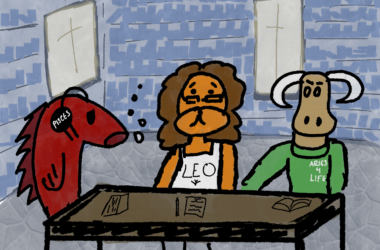A student receives an acceptance letter to their dream school or an offer for a prestigious internship, yet, they cannot help but wonder why they were selected. These thoughts are characteristic of impostor syndrome: The feeling that one’s successes are not a result of their efforts or abilities but are, instead, a fluke. Those who experience the phenomenon often feel like a fraud and believe their achievements do not measure up to their peers’ accomplishments. The fast-paced campus life can bring forth these feelings, causing self-doubt in students’ minds.
Experts have identified five manifestations of impostor syndrome: The perfectionist, who always feels dissatisfied with their achievements; the superperson who is often described as a ‘workaholic’; the natural genius, who fears facing obstacles in their work; the soloist, who avoids asking for help; and the expert, who is determined to excel at everything they attempt. From the outside, these high-achieving individuals might seem high-strung or obsessed with being the best. However, they are often unable to recognize their own success.
High-pressure environments, such as universities, are replete with individuals battling some form of impostor syndrome. This is generally a consequence of coming from a smaller, safer community, such as high school, and joining a larger or organization in which competition can be more intense. Hannah Reed, U1 Arts, explained that interacting with peers in her program can sometimes trigger impostor syndrome.
“As an Arts student studying computer science, I sometimes feel like a fraud among that community,” Reed said. “I’m scared I’ll go to the computer science lounge and someone will ask me a question […] right away, they’ll just know I don’t belong. It takes a lot to fight that insecurity and remind myself that I study all the same material [as the other students in the program].”
Over 70 per cent of individuals surveyed by the International Journal of Behavioral Science admitted to feeling insecure at some point in their lives. Although impostor syndrome is common among students, it is not limited to that demographic. Accomplished individuals, including Emma Watson, Meryl Streep, and Neil Armstrong have spoken publicly about their fears of being exposed as frauds in their respective fields. Even Maya Angelou, the critically-acclaimed author, said that, after each of her books were published, she feared being exposed as a phony author. For students, it is important to realize that these insecurities are commonplace and just a consequence of high achievement.
When battling impostor syndrome, individuals can sometimes feel as if they are the only ones struggling with self confidence. Understanding peers share the same insecurities is key to overcoming the negative thoughts associated with impostor syndrome. Students often find that talking to their friends and counsellors helps in easing their worries. Amanda Dennie from McGill’s Peer Support Centre often speaks with students who feel overwhelmed in their environments. She finds that their self-doubt can sometimes leads to negative habits such as procrastination or overworking.
“Sometimes, students come in with lots of extracurriculars and activities and still fear they’re behind everyone else,” Dennie said. “They often wonder, ‘am I doing enough?’ or ‘do I belong here?’ [….] You made it here, so you deserve to be here. Be kind to yourself.”









